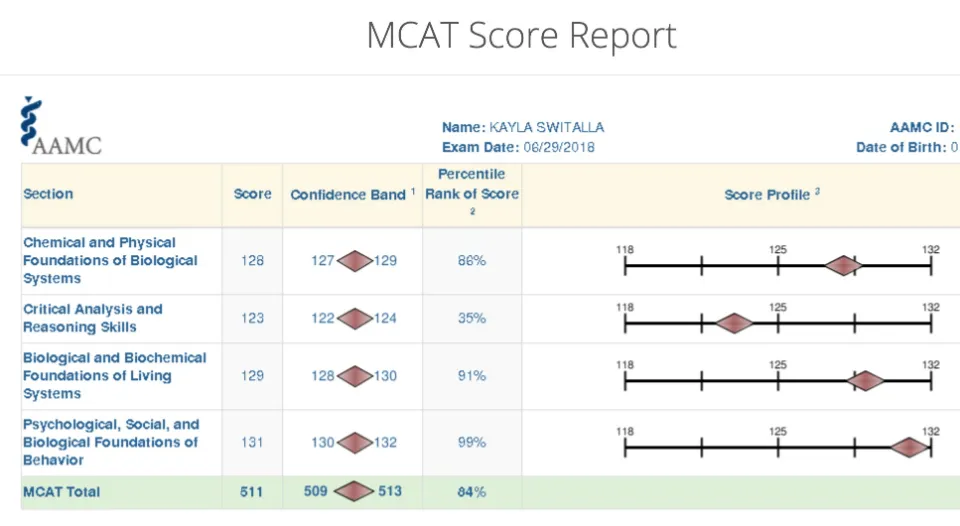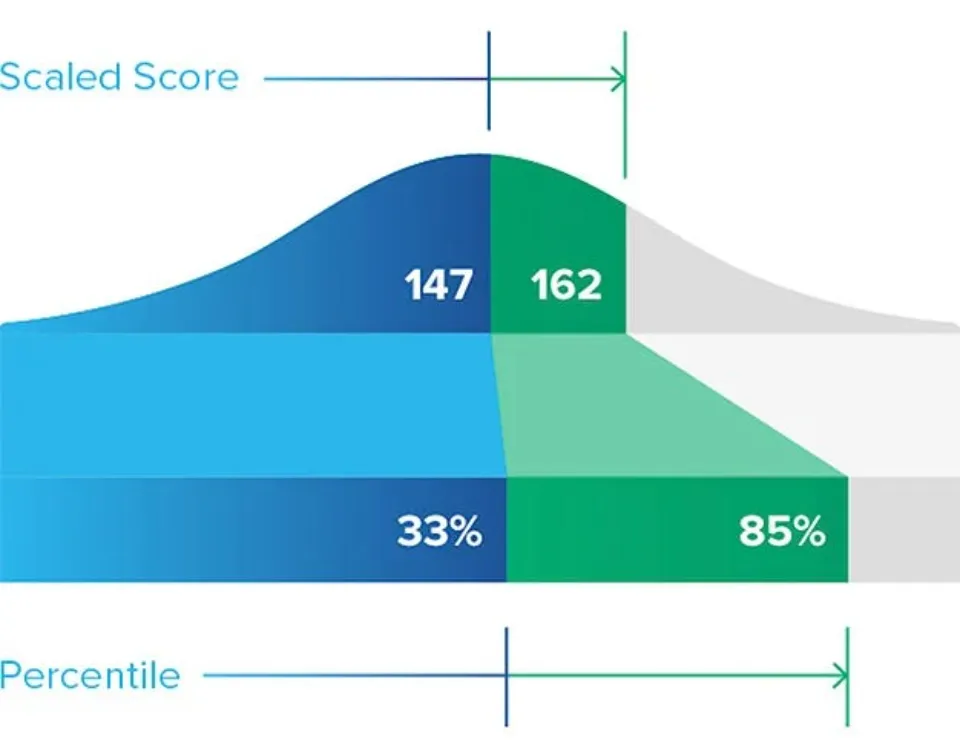
How to Increase Your MCAT Score by 20 Points? 11 Tips
You can still raise your score by 10 or even 20 points if you’re short on time. In this blog, I will show you exactly how to do that.
Even though it may seem like there isn’t much time left before the test, there are still enough days left that implementing some of these changes should allow you to quickly raise your score. Here is a short list of the top eleven MCAT study methods. Even if there are only a few days left until the deadline, they will help you get a better grade.
Read More:
- Is 515 a Good MCAT Score? What is a Good MCAT Score?
- How to Send MCAT Scores to AACOMAS?
- Do Medical Schools See All MCAT Scores?
Change Your Mindset
Consider the MCAT as an opportunity to showcase your expertise in biology and the sciences. Consider it an opportunity to have some fun by spending a few hours solving some brainteasers about chemistry, biology, and English rather than as some nasty machine that spits out a number that determines your future. Surprisingly, letting go of the performance-related pressure actually makes you perform better.
Focus on High Yield Areas
In order to succeed on the MCAT, a student must possess a certain level of fundamental knowledge. Your score will significantly increase if you learn about all of the hormones, equilibrium, and a few organic reactions like SN1/SN2 and carbonyl substitution reactions. Better yet, all of these topics can be learned in the nine days leading up to August 15.
Land on the Right Answer First

After reading a question, consider the best possible response, then see if it is listed as an option. Search for the correct answer first rather than eliminating possible answers. When in doubt, start circling potential answers, and if you’re still unsure, don’t be afraid to make a calculated guess.
Train Yourself to Perk Up at Known Trick Words
The MCAT enjoys using unethical tactics, like all standardized tests. The MCAT might include a question about frequency if the majority of students learned the electromagnetic spectrum in terms of wavelength.
As the concentration of H+ rises, acidity and pH shift in the opposite direction, so careless question readers will receive a low score on the MCAT. Besides frequency/wavelength and acidity/pH, I’ve noticed that the MCAT exploits compounds with multiple ions (BaCl2, Na2SO4) and the word “Not” as ways to complicated questions.
Make the Most of Your MCAT Practice Exams
The quality of your practice exams’ analysis will have a significant impact on your final grade. Consider your performance, timing, stress level, favorite questions, and mental stamina instead of just checking the answers and moving on.
Additionally, review your responses the following day so that you can take the test with fresh eyes. Put the incorrect responses in a Google Spreadsheet as you review your responses. Make a note next to each incorrect answer and consider what you need to know to get it right the next time.
Learn How to Identify the Correct Answer Faster
You will frequently find yourself torn between two answers when dealing with a particularly long and complicated question. Both of them are correct statements, but only one of them answers the actual question. Your decision must, in other words, directly address the query at hand.
Reading the last sentence of the question first, followed by a quick review of all potential answers, is one of the best hacks. MCAT writers often include a lot of extraneous information in a passage to confuse you. But frequently, you’ll see that the question itself is simple. Always try to get to the heart of the matter.

Focus on High Yield MCAT Subjects First
Here’s a quick breakdown of the MCAT topics:
- Biology – 25%
- Psychology – 25%
- Biochemistry – 20%
- Chemistry – 15%
- Sociology -> 10%
- Physics -< 10%
- Organic chemistry -> 5%
By looking at the numbers, you see that biology, chemistry, and psychology take up 75% to 80% of the whole exam. With that in mind, concentrate primarily on these high-yield topics during your preparation. I’m not telling you to skip physics and sociology, but make sure you have a solid understanding of biology, chemistry, and psychology first.
Create a Real Test-taking Environment and Get Used to It
MCAT testing facilities are gloomy, intimidating places. You’ll be seated in a cubicle with nothing but walls to look at. The entire experience lasts about 7,5 hours (content time: 6 hours and 15 minutes, “seated” time: 7 hours and 30 minutes). I advise you to replicate this configuration in your library at least once before taking the test.
The schedule goes like this:
- Tutorial – 10 mins
- Chemical and physical foundations of biological systems – 95 min
- Break – 10 mins
- CARS – 90 mins
- Mid-exam lunch break – 30 mins
- Biological and biochemical foundations of behavior – 95 mins
- Break – 10 mins
- Psychological, social, and biological foundations of behavior – 95 mins
- Void question (here you can make your test void if you feel you’ve flunked) – 5 mins
- Satisfaction survey – 5 mins

Use Noise-canceling Headphones Or Not
When you arrive at the test center, you’ll see there are these (usually orange) headphones in each cubicle. These work to block out noise. Before the exam, consider whether you would prefer to work in complete silence or with some background noise. Many students claim that maintaining complete silence allows them to concentrate more effectively.
Remember to Relax and Keep It Steady During Your Prep Sessions
Getting overworked and overwhelmed will lead to burnout. Because of this, leading a healthy lifestyle is essential to getting a high MCAT score.
Take regular breaks between study sessions, get enough sleep, abstain from alcohol and fast food, and engage in regular exercise. You can approach your preparation more loosely after doing these things. Keep in mind that studying shouldn’t continue until your brain starts to fail. Better outcomes come from consistent daily effort over the course of three to four months.
Join An MCAT Study Group Or Take a Prep Course
Study groups are great, but you should know your personality before committing to one. Go for it if study groups have previously worked for you and you have a social personality. You can share knowledge and study materials with other students and get a sense of your progress.
But if you’re an introvert and prefer to study alone, you can forego the study session and concentrate on your own solitary study.
Additionally, you might think about enrolling in an MCAT prep course. They will enable you to study more systematically and to interact with knowledgeable teachers.
Conclusion: Increase Your MCAT Score
Your MCAT score should quickly rise if you make these straightforward adjustments to your way of thinking. Consider incorporating these concepts into your current study plan if you won’t be taking the MCAT until later this year to give yourself an even bigger advantage.
Hope this blog can help you improve your MCAT scores.


